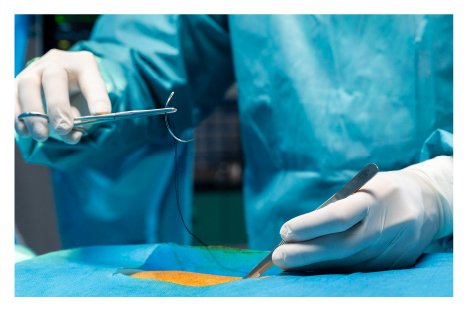Laparoscopic
Take a clear step forward in your fertility
journey with trusted, expert care.

At Yellow Fertility & IVF, our flagship IVF program with 86% success rate combines cutting-edge science with deeply compassionate care to give you the best possible chance of building your family.
What Is Laparoscopic Surgery in Infertility?
Laparoscopic surgery is a minimally invasive procedure used to diagnose and treat problems in the pelvic organs that may affect fertility. A small camera (laparoscope) is inserted through a tiny incision in the abdomen, allowing doctors to view the uterus, ovaries, and fallopian tubes in real time without needing open surgery.
At Yellow IVF, we don’t just look, we treat. With advanced laparoscopy, we identify and correct issues that may be preventing pregnancy, giving couples a renewed chance to conceive.

Why Families Choose IVF at Yellow Fertility?
- 86% Success Rate – Among the highest in the industry
- Advanced Labs – World-class technology for precise, high-quality care
- Personalized Protocols – Tailored to your body and journey
- Expert Team – Fertility specialists, embryologists, and counselors
- Emotional Support – Compassionate care at every step

When Should You Consider Laser-Assisted Hatching?
Not every IVF cycle requires this method. However, Laser-Assisted Hatching (LAH) Treatment in IVF can be a helpful option if:
- You have had two or more failed IVF cycles.
- You are undergoing frozen embryo transfer (FET).
- You are over 38 years old.
- You have elevated FSH levels or poor ovarian reserve.
- You are facing unexplained infertility.
- Your embryo’s outer shell appears thicker or harder under observation.
Our fertility experts will review your medical history and embryo development before recommending this technique.

When is Laparoscopic Surgery Recommended?
- Unexplained Infertility
- Symptoms of Endometriosis
- Suspected fibroids or ovarian cysts
- Blocked or damaged fallopian tubes
- Chronic pelvic pain
- Recurrent miscarriages due to suspected uterine anomalies
Why Choose Yellow IVF for Laparoscopic Surgery?
Our laparoscopic surgery procedures are performed by experienced specialists who understand both the medical and emotional aspects of fertility treatment. We use the latest 3D imaging technology and robotic-assisted techniques when appropriate.
Recovery from our minimally invasive procedures is typically very swift. Most patients return to normal activities within days rather than weeks. The tiny incisions heal quickly, and they leave minimal scarring. It successfully helps you to focus on the exciting possibilities ahead rather than lengthy recovery periods.
Advanced Equipment
We use cutting-edge imaging and surgical tools for accuracy and safety.
Specialist Surgeons
Our laparoscopic experts are also fertility specialists, giving you a dual advantage.
Patient-First Philosophy
We don’t just treat — we listen, support, and walk the path with you.
Minimal Downtime
Quick healing and minimal scarring help you move forward faster.
Conditions Treated Through Laparoscopic Surgery
Laparoscopy offers multiple solutions for infertility depending on the root cause. Here are some common procedures:

Removes cysts affecting ovulation while preserving healthy ovarian tissue to support fertility.

Eliminates uterine fibroids that disrupt implantation or cycles, improving chances of natural or assisted conception.

Reverses tubal ligation by reconnecting the fallopian tubes, enabling the possibility of natural pregnancy.

A minimally invasive removal of the uterus, typically for fibroids, abnormal bleeding, or cancer.

Allows early diagnosis of complications like PCOS, endometriosis, or tubal damage.
How is Laparoscopy Done?
Laparoscopy is the process of visualizing and performing surgical procedures inside the belly and pelvis using a laparoscope, a tiny device having a camera and light source. Here is a detailed rundown of the process:
Anaesthesia
Throughout the surgical operation, the patient is guaranteed to stay unconscious and pain-free thanks to general anesthesia.
Incision
To implant the laparoscope, a tiny incision—usually less than half an inch—is made close to the umbilicus, or belly button.
Carbon Dioxide (CO2) Insufflation
Through the incision, CO2 gas is delivered into the abdomen. The abdominal cavity is inflated as a result, giving the surgeon more room to work and improving vision.
Visualization
High-definition images of the abdominal organs are transmitted by the laparoscope when it is connected to a monitor. This helps the surgeon make diagnoses or carry out surgical procedures.
Additional Incisions
To introduce surgical equipment, further tiny incisions might be created, depending on the technique. These tools make it possible to manipulate tissues or organs by suturing, cutting, or gripping them.
Procedure Completion
After the surgical procedures are finished, the CO2 gas is expelled from the abdomen and the laparoscope and tools are taken out.



What to Expect Before and After Surgery?
Before your laparoscopic procedure, you will go through a few routine medical tests to ensure you’re fit for surgery. Your doctor will explain the entire process clearly and will address all your questions to help you feel fully informed.
After the procedure, recovery is generally smooth; most patients are discharged on the same day or the following day. You may experience mild discomfort for a few days, which is normal and manageable. Follow-up visits are important, as they allow your doctor to monitor your healing and assess your progress toward improved fertility.
The Cost of Laparoscopic Surgery
At Yellow IVF, we understand that financial concerns should never stand in the way of your dream to build a family. We are committed to full transparency and affordability.
After the procedure, recovery is generally smooth; most patients are discharged on the same day or the following day. You may experience mild discomfort for a few days, which is normal and manageable. Follow-up visits are important, as they allow your doctor to monitor your healing and assess your progress toward improved fertility.

The cost of Laparoscopic surgery in India varies depending on different aspects.

Laparoscopy cost for infertility usually ranges between ₹25,000 and ₹70,000.

This includes doctor consultations, operation theatre charges, anaesthesia, and follow-up care.

Additional services like fertility medication or other treatments may influence the Laparoscopic surgery cost.
Let Yellow IVF Be Your Partner in Hope
The path to parenthood may have seemed uncertain, but Laparoscopic surgery at Yellow IVF opens new possibilities. Our minimally invasive approach addresses the root causes of fertility challenges and prepares your body for successful conception.
If you want to know more about the Laparoscopy cost for infertility, our team would be honoured to walk you through your options. Reach out to us today and let us be a part of your journey.
FAQ about Laparoscopic surgery
Most patients can start trying within 1–2 menstrual cycles after surgery, depending on what was treated and how well healing goes. Your doctor will guide you.
Yes, if structural issues like adhesions, fibroids, or uterine abnormalities are suspected, laparoscopy can help correct them and improve your chances of a healthy pregnancy.
Hardly! The incisions are tiny, often smaller than a centimeter. It usually fades over time and leaves minimal cosmetic concern.
There’s no fixed age, but doctors consider overall reproductive health and egg reserve. It’s commonly done in women under 40, but decisions are case-specific.
Yes, especially if issues like fibroids, cysts, or adhesions are corrected. A healthier uterus and pelvis can significantly support implantation and IVF outcomes.
Don’t Just Take Our Words, Take Theirs
EXCELLENTTrustindex verifies that the original source of the review is Google. Good servicePosted onTrustindex verifies that the original source of the review is Google. From the first consultation to the treatment, Yellow Fertility has been extremely supportive and professional. The staff is caring, and the doctors are highly knowledgeable. If you’re looking for top fertility specialists in Gurgaon, I highly recommend this clinic.Posted onTrustindex verifies that the original source of the review is Google. Amazing experience! The doctors and staff are supportive, professional, and truly care. Highly recommend for anyone on their fertility journey.Posted onTrustindex verifies that the original source of the review is Google. Went with a friend for support. I found the staff very kind and non-judgmental.Posted onTrustindex verifies that the original source of the review is Google. Centre is very well equipped, special thanks to Ms Palak for her guidance and treatment explanation.Posted onTrustindex verifies that the original source of the review is Google. Best and Most trusted IVF trusted centre I ever seen. Staff behaviour are very positive and professional.Posted onTrustindex verifies that the original source of the review is Google. I’d been putting off egg freezing for years mostly because of the cost and not knowing where to start,Yellow Fertility changed that. They really listened and guided me through every step and even helped me with a financial plan that made it doable for me. So grateful I finally took this step with them.
